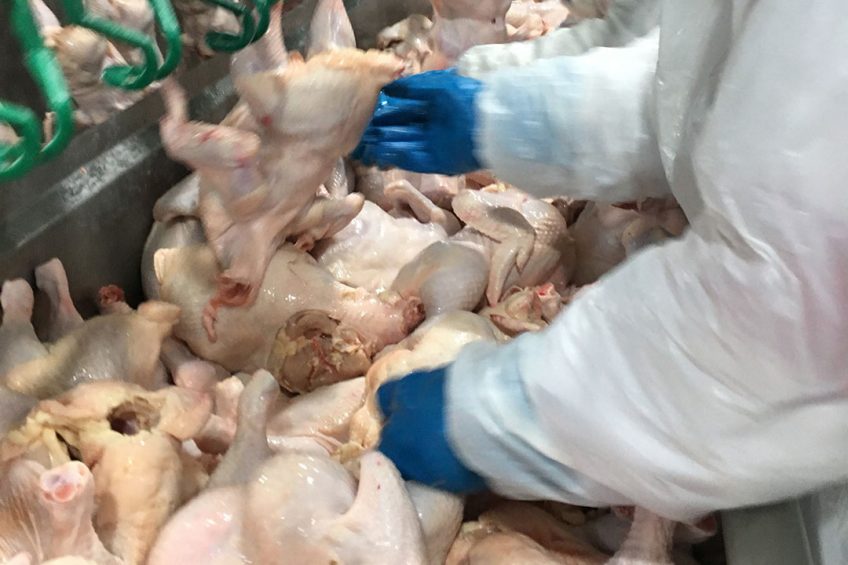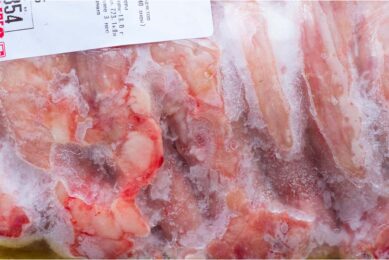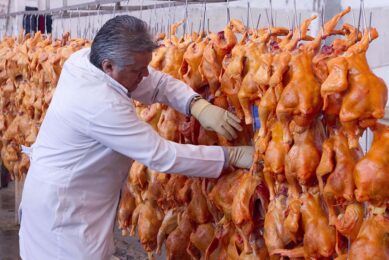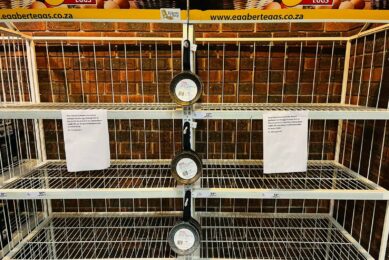Philippines poultry industry calls for import restrictions

Numerous agriculture and related organisations have appealed to the Philippines Department of Agriculture (DA) and the Bureau of Animal Industry (BAI) to stop issuing import permits for chicken meat, pork, and processed meat products as an oversupply is resulting in the decline of farmgate prices.
“Imports are causing ‘despicable’ damage to millions of Filipinos,” the Manila Bulletin noted the statement as saying. However, agriculture secretary William Dar said while the DA could not suspend imports, the agency is doing what it can to restrict the issuance of import permits. Government data showed that in the first quarter of 2020, poultry production grew 3.9%, and accounted for 14.9% of total agricultural production. Chicken production grew 3.3%, while duck production grew 0.8%. Meanwhile, CNN reports that the DA cited data from the BAI that showed a decline in imports of over 20% from about 42,600 mt in January to about 33,500 mt in May. This decline, said Dar, means that the country has sufficient local production.
Imports do not compete
Of the poultry meat imports, 70% comprised of mechanically deboned meat (used as raw material by meat processors and is not locally available), fats, offal and rinds, according to BAI’s National Veterinary Quarantine Services Division, reports Manila Bulletin. “The imported poultry products are used by meat processing and manufacturing firms, and do not compete in the wet market, where our local producers bring their fresh products,” said Dar, adding that “it is the department’s commitment to raise the productivity of the country’s poultry sector”. “The volume of imports need not be overwhelming to cause damage. It only takes a relatively minimal volume to move farmgate prices from profit to loss as agricultural products are commodities,” the PhilStar reported the United Broilers and Raisers’ Association (UBRA) president Elias Jose Inciong as saying.
According to BAI director Ronnie Domingo, the oversupply of poultry meat was caused by the lower demand for the commodity after the government-imposed community quarantine nationwide starting mid-March. He said the DA is looking for ways to address the excess supply of poultry.
Imports are causing ‘despicable’ damage to millions of Filipinos”
A request for local poultry raisers to limit production
Philippine News Agency reported that the House Committee on Agriculture and Food will investigate the proposal to increase the volume of poultry imports. Quezon Rep. Mark Enverga, panel chair, expressed apprehension over the recent state of the local poultry industry following reports that the BAI has requested local poultry raisers to limit their production to give market space for imports. He added that the government should protect local producers and manufacturers.
Referring to the letter to the DA, he dismissed BAI’s claim that poultry imports were too “minimal” to hurt Filipino producers. “The poultry producers deserve to be heard and be assured that the government is doing its share to combat the problem arising from high levels of importation of poultry products, while we are experiencing an oversupply of broilers in the market,” he added, stressing that the government and the industry must work together to help the local broilers. Dar, however, clarified that BAI did not ask poultry raisers to limit local production.
 Philippines: Chicken overtakes pork as preferred protein
Philippines: Chicken overtakes pork as preferred protein
While pork had traditionally been the main source of protein for Philippine diets, in 2019, chicken overtook pork for the first time in per capita consumption. Boosted by rising incomes and a growing middle class, the Philippine broiler sector is set to surge.
Implement reforms
UBRA called on the DA to implement reforms in the agency, including the reformatting of systems to simplify collection of tariffs and duties, and addressing undervaluation through methods allowed by the World Trade Organization on the regular comparison and publication of the composition and volume of exports. The DA was also asked to implement cold chain-ready quarantine facilities at the Customs border, to support the corn sector and for the strict enforcement of the Price Act.
Signatories to the statement issued to the DA include the Philippine Association of Feed Millers, the Pork Producers Federation of the Philippines, the Philippine Maize Federation, Philippine Chamber of Agriculture and Food, the United Broilers and Raisers Association, the National Federation of Hog Farmers, the Philippine Eggboard Association, and the Philippine Veterinary Medical Association.
 Beheer
Beheer








 WP Admin
WP Admin  Bewerk bericht
Bewerk bericht